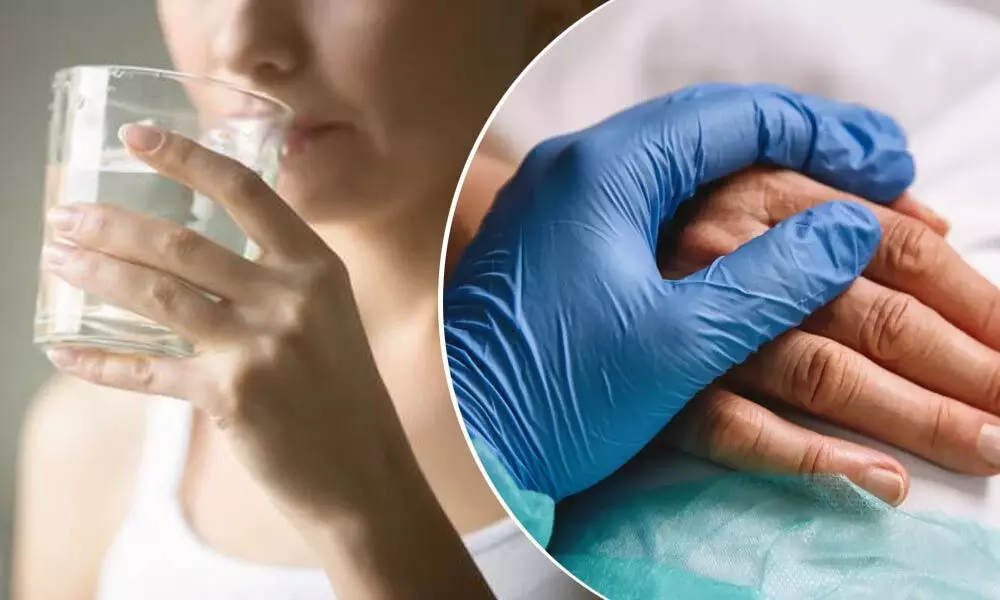Health Tips To Be Followed After Recovering From Covid-19

Health Tips To Be Followed After Recovering From Covid-19
As soon as a patient recovers from Covid-19, he/she should rest for a few days without initiating daily duties and tasks.
As soon as a patient recovers from Covid-19, he/she should rest for a few days without initiating daily duties and tasks. Before doing any physical activity, people should assess their health condition. Along with it, doctors suggest not to take cold foods for one or two days. Ice creams, cool drinks and soft drinks should be avoided altogether. They should drink a glass of lukewarm water once in every hour. This will prevent dehydration and also at least 8 hours of sleep per day will keep the patient recover soon.
Covid-19 patients who got treated in the hospital or treated at home may take 2 to 3 months to fully recover. The most prevalent post-covid-19 symptom is supposed to be gastrointestinal issues.Immediately following recovery from the corona, it is recommended that you do not increase your physical activity too quickly, but instead actively participate in varied everyday duties.The status of the lungs, heart, and other organs is claimed to improve over time, but they cannot tolerate extreme physical exercise or stress.
Chief Interventional Pulmonologist Dr. HarikishanGonuguntla, General Medicine Specialist Dr. A. Naveen Reddy's says,
Covid-19 patients remain weak even after recovery. They may take a long time to fully recover. Patients who recover after being admitted to the ICU take 1–2 months to completely recover. Those who recover after taking ventilator support can take 3–6 months to get back to normalcy. Physical activity or exercise should not be done in excess at this time.Without sitting stationary, normal physical activity should be maintained. Walking and light exercise should be gradually increased. Within a month or two, you will be ready to resume routine activities.
During this time some special measures must be taken to increase the capacity of the organs. The incentive spirometer will increase the capacity of the lungs to inhale and exhale strongly. Lying down for 4 hours a day and doing things like breathing (self-prone) will open the closed alveoli (air sacs). Some use oxygen concentrators to increase oxygen levels to 98. It is not advisable to increase oxygen dependence like this. It should be avoided.
After recovering from the corona, oxygen levels in the room should be between 88 and 90 percent. In three months, it gradually returns to its previous state. Even though there are no special measures to be taken in terms of the heart, aerobic workouts should be done.According to Dr. HarikishanGonuguntla, Chief Interventional Pulmonologist at Yashoda Hospital, one study found that taking anti-coagulation medicines for at least a month reduced heart-related mortality.
Post Covid-19 Syndrome lasts for 2,3 months after recovery from it. Its effectiveness depends on the patient's physical condition, immunity, physical fitness, and previous work. Problems with this syndrome are mostly associated with the digestive system. Indigestion, vomiting, diarrhoea, heartburn, cough, fever, joint and muscle aches last for at least three months. Therefore, spicy food should be avoided completely. Easily digestible foods, a variety of greens, fruits, and fruits should be consumed regularly.
Painkillers that do not affect the digestive system should be used for muscle and joint painPeople with a fast heartbeat and a rapid heart rate should get a 2D echo and an ECG, as well as take medicine as suggested by a doctor.Walking, physical activity and exercise should be done as much as possible with the doctor's recommendation and to the extent that the body cooperates. These should be increased gradually. Do meditation and yoga to relieve mental and other stress.
Monthly headaches, nostrils, toothaches, swelling of the eyes, black spots on the palate, black fluid in the nose or bad breath should be carefully monitored as part of the postoperative period. Oxygen saturation should be checked. Patients also report symptoms such as being unexpectedly weak or irritated in the post-covid period, as well as excessive sweating. If you have abdominal pain, vomiting, or blood in your stool, see a doctor right away, recommends Dr. A. Naveen Reddy, General Medicine, Critical Care Specialist, Naveen Reddy Hospital.








